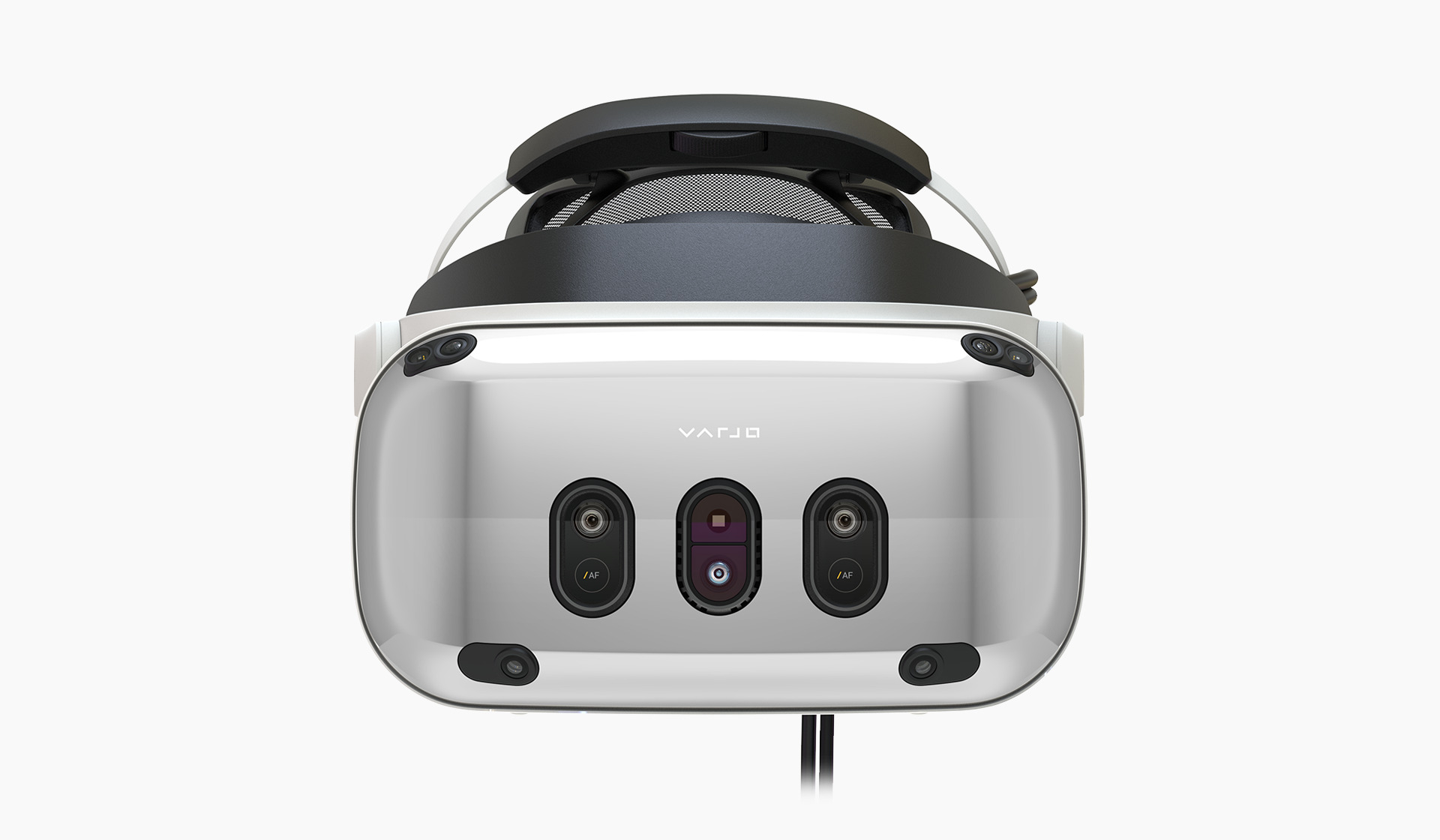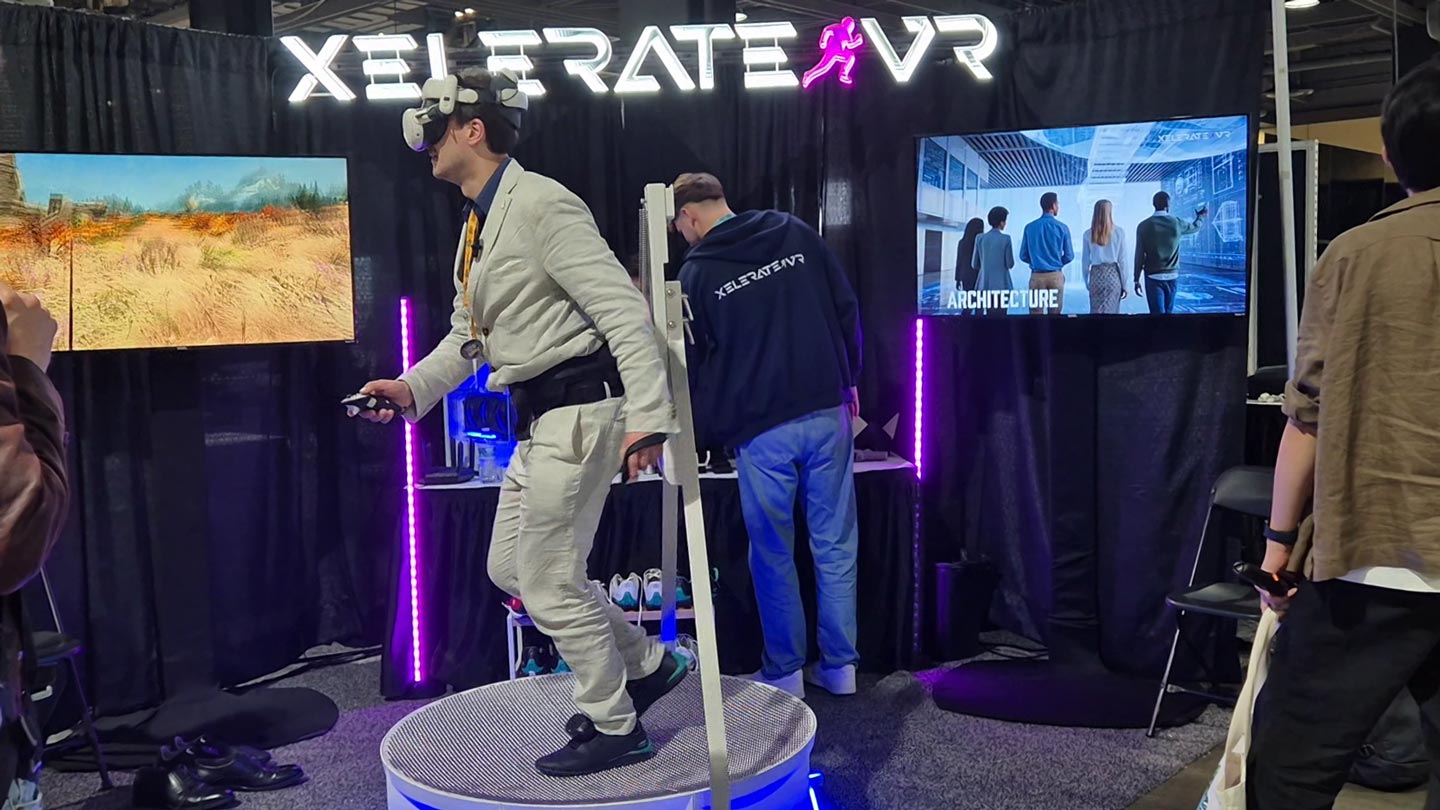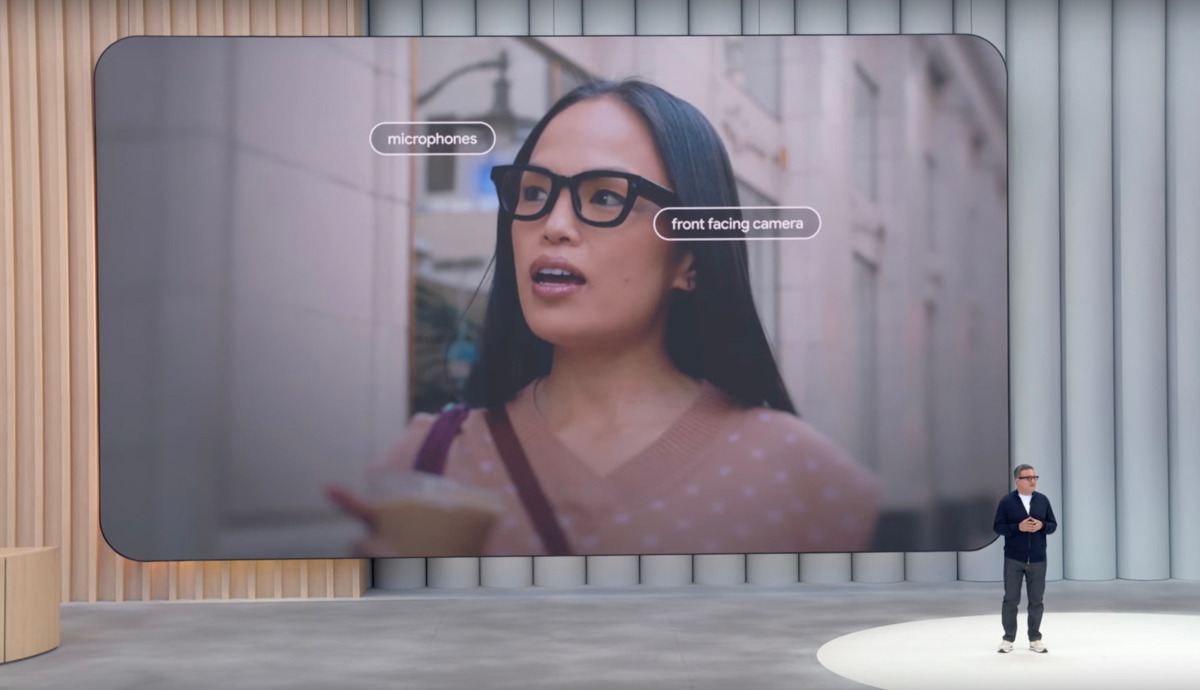Hands-on: Varjo XR-4 Focal Edition takes passthrough to the next level
Yesterday I was visiting Varjo and I had the opportunity to try the Varjo XR-4 Focal Edition. I came out impressed by the clarity of its passthrough and I want to tell you why in this short article.
My visit to Varjo
I’m currently in Helsinki to attend MatchXR and of course, I decided to visit Varjo, since it is based here. At Varjo I was able to try a few things and I will write a detailed article about one of them soon. At the end of the visit, I was asked if I wanted to play around with a plane simulator that was there in the demo room. I never say no to a plane simulator, so I entered the cockpit, put on my head the Varjo XR-4, and started playing with the simulator. The simulator was the classical training simulator for plane pilots, so I could not shoot at other planes and feel like Top Gun, but just pilot the plane to have a stable flight. Something that I did not obtain, because I made the plane crash pretty bad (I had one job…).
The plane simulation was in mixed reality: I could see the physical simulator cockpit in passthrough vision, and then the space I was flying in was a virtual environment visible only in the region of the cockpit where the pilot would have the transparent glass. The mixed reality simulation was pretty good.
Varjo XR-4
It is not the first time I have tried the Varjo XR-4 and I already detailed some first impressions I had one year ago in this post. It is a solid device for enterprise that features a very high resolution of its panels: with 3840 x 3744 resolution per eye and a 120° x 105° field of view, this headset is able to cancel the screen door effect and provide visuals that have very high definition. It’s a good choice for companies for which graphical resolution is of paramount importance, like for instance design firms.
This is the full list of specs:
- Display: Two mini-LED displays
- Resolution: 3840×3744 (each)
- Refresh Rate: 90 Hz
- Contrast: 1:10000
- Luminance: 200 Nits
- Lenses: Custom, variable resolution, full-dome, aspheric optics
- FOV: 120° x 105°
- Passthrough:
- Cameras: 2 x 20Mpx
- Latency: ~22ms (the company is working to even improve it)
- LiDAR: 300-kilo pixels, 7meter range, 30 FPS
- Connectivity: 1x display port + 1x USB-C
- Audio:
- Speakers: Spatial audio (integrated speakers) + 3.5 mm jack
- Microphone: 2x integrated microphones (noise canceling)
- Tracking: inside-out + support for SteamVR via dedicated faceplate
- Controllers: Varjo controllers (powered by RAZER™) included
- Weight: 1021g
Last time that I tried the Varjo XR-4, since the device I was given was a preview unit, I was not able to reliably test the passthrough. Now that I could finally put on a production unit, I can finally tell you my experience about that.
Varjo passthrough and the Focal Edition

During my demos at Varjo, I could finally test the passthrough of the XR-4 and I can say that it is a good one. Probably if I had tested it at the Oculus Quest 2 times, I would be here saying that the passthrough of the Varjo is the best I have ever tried. But after all the updates to the passthrough quality on the Oculus Quest 3 and the impressive definition on the Apple Vision Pro, I can just say that it feels like a regular high-definition passthrough for 2024. I wasn’t impressed by it, and I also found it a bit more noisy than the ones of its competitors (but I have not tested it side-by-side in different conditions, so take this opinion with a grain of salt).
This was my opinion until the demo of the cockpit. During the demo, between a crash of the virtual plane and the next one, the Varjo employee who was assisting me gave me some sheets of paper with some data that is usually of interest to the pilot. I looked at the paper and started reading these very small writings, not understanding what they meant, but pretending they were very interesting not to look stupid in front of Varjo people.
After having looked at a few sheets of these suuuuper-interesting data, I put the thing away to return to piloting and crashing planes as if there was no tomorrow. My brain then started processing the information.
A bit late like Internet Explorer, I realized after a few seconds that I had been able to read a document with very small text very well from the passthrough of the headset. I so took the sheets of paper again and looked at them with more attention now: they looked incredibly crisp. They were not just readable, hey were very defined. Since I stopped caring about the plane controls, the plane crashed again, but that was not that important to me anymore. I was very surprised by the quality of that passthrough, which was uncommon.
Varjo XR-4 Focal Edition hands-on
I recalled that the clarity was typical of the Varjo XR-4 Focal Edition, so I asked the employee and she confirmed my theory.
The Varjo XR-4 Focal Edition is one of the models of Varjo XR-4 and it features an incredibly crisp passthrough thanks to the Autofocus feature. Basically, the eye tracking of the headset drives the autofocus of the 20 MP passthrough cameras so that the cameras focus exactly on the object the eyes want to focus on. So when I was focusing on the sheet of paper, the passthrough cameras of the headset put their focus on the passthrough paper, giving it very high clarity. It was like the cameras became an extension of my eyes. Thanks to this mechanism, the Varjo XR-4 Focal Edition is able to provide a mesmerizing 51 PPD pixel density of the passthrough. Retina resolution is considered around 60 PPD, so we are very close to what the human vision requires.
I can confirm that the quality there is very close to human vision: I started focusing on the papers, then the cockpit buttons, and I could see that whatever I was looking at had an impressive definition, almost like I had no headset. The cockpit of a military plane is full of small writings, and I could read them all, no matter where they were positioned. And it was cool that this definition was using my eye tracking: I did not have to rotate my head to focus on an object, but I could just naturally just move my eyes to look at that. All of this was impressive, I have to admit.
Of course, this wouldn’t be a hands-on on the Skarredghost website if I didn’t tell you also about the problems of this (amazing) feature. The high resolution of what you are focusing on is incredible, but it happens only in a small rectangular region. And it is clearly visible what are the edges of this region: after a while, you start noticing that with your eyes you are moving a small rectangle of high definition and inside this rectangle, things are very crisp, and outside it, they are good but less crisp. To make things even worse, there is a movement lag: when you move your eyes from one object to the other, there is a fraction of time that is needed before the headset puts its focus on that object. The lag is a bit annoying, because even if it is small, it is noticeable, and this makes the perception through the headset feel less natural. There was also a tiny bit of noise also in the focus area, so I could still perceive I was looking through a screen if I put my attention on it.
I think that Varjo should blur more the edges that separate the high-definition focus area from the passthrough one, and especially should work hard to reduce the lag of the change of focus. But on the definition side, I think they are definitely on the right path: I’ve never experienced a passthrough with such clarity.
Final considerations

It was cool for me to try the Varjo XR-4 Focal Edition, because it showed me how potentially passthrough in mixed reality headsets may be in the future. With its high quality and the ability to truly optical focus on objects, it made me realize that passthrough vision could become as crisp as our standard vision, letting us do every task we want without removing our headset. I just can’t wait for this to happen on a headset that doesn’t cost €10,000…
Disclaimer: this blog contains advertisement and affiliate links to sustain itself. If you click on an affiliate link, I'll be very happy because I'll earn a small commission on your purchase. You can find my boring full disclosure here.



